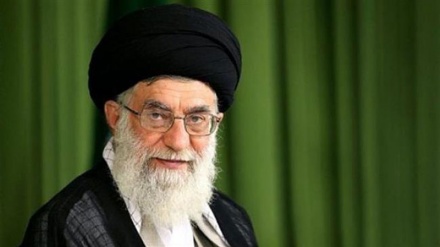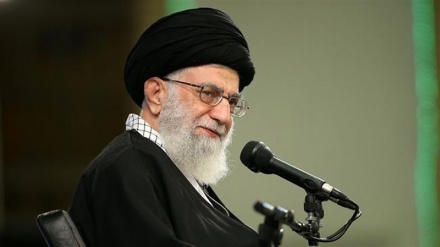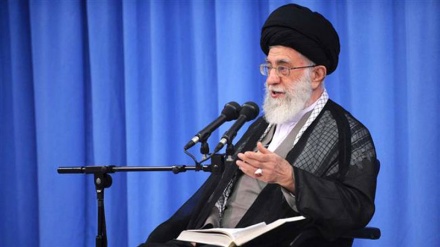In Presence of the Sun (64)
This time we are going to touch upon the issue of justice with a focus on the viewpoints of the leader of the Islamic Revolution, Ayatollah Seyyed Ali Khamenei.
Justice means establishment of equality and balance in different affairs so that everybody will have what he/she deserves and everything is in its appropriate position. The opposite of justice is injustice or oppression. It means denying the individual what he/she deserves and depriving him/her of their right. Ayatollah Khamenei describes justice as a broad concept which has been intertwined with right. He further explains it, “Justice, on surface, is a simple concept.
Everybody says and repeats it but, in practice, reaching justice is very difficult. This is the very point that Imam Ali (AS) has said on justice, ‘Right is the broadest thing in definition and the narrowest in practice.’ Justice is exactly the same; for, justice and right are not separable at all. In a sense right is the same as justice and justice is the same as right. Its definition is easy but in practice attaining justice is difficult. Even recognition of justice and its manifestations are sometimes very difficult.”
The Leader adds, “Reduction of distances, giving equal opportunities, encouraging the one who works correctly, and harnessing the aggressors of national wealth, promotion of justice in the governance – appointments and dismissals, judgments, commenting- considering the remote and poor regions of the country like the capital, taking the financial resources to all, considering everybody as the owners of these resources; these are certainly among the obvious examples of justice which should be done.”
Social justice is one of the important and valuable aspects of the human life. In the view of Ayatollah Khamenei social justice is based on three pillars which should always be in the mind of the architects and designers of social system. The first pillar is just laws which are, surely, the divine laws since they have been revealed by God and God is the only one who is aware of every dos and don’ts of the creation. If the divine laws are put into effect justice will be set up in the real sense of the word.
The second pillar is the power to execute these laws. If there are just laws but no power to execute them no social justice would be enforced. The best laws would be inefficient if there were no rightful enforcer. That’s why, in an Islamic society, the head of the executive branch must be just and pious to supervise the execution of laws and regulations.
The third pillar for enforcement of justice is “people”. If we want to enforce justice properly in a society the people should be present at the arena. They should understand their rights and demand implementation of justice which is indeed maintenance of those rights. That’s why Islam emphasizes on people’s understanding of their rights. If people recognize their rights and demand them enforcement of justice would be definitely guaranteed.
Eradication of poverty, reduction of class gaps and efforts for equality of individuals in application of facilities and opportunities are among the principal preludes of social justice. Ayatollah Khamenei says in this regard, “In our opinion justice means reduction of class gaps. If a region is in a remote geographical place far from the capital; it shouldn’t be deprived while the place which is near is thriving. This is not justice. Both the class gaps and the geographical gaps should be removed and equality in using facilities and opportunities must be created.” Addressing the officials, the Leader states, “In planning, you should put on top of the agenda eradication of poverty and deprivation in the country. This is one of the pillars of justice.”
Every school of thought has a certain narrative of human being and the reality of his perfection. That’s why each of them has presented a different interpretation of justice. The contemporary thought in the West, especially among the adherents of liberalism and the laissez-faire, believe that among the social values and merits, growth and development are superior to social justice and the so-called “flourishing of free economy” will ultimately benefit the weak and under-privileged strata.
But the Leader of the Islamic Revolution rejects this idea as contrary to the Islamic thought, saying, “We do not live up to some of the policies prevailing in the world with many advocates; to think only on growth of production and wealth in the country and forget about justice. No, this is not our logic. The innovation of our system is that we want justice along with development and economic growth. Some think that we have to spend a period on growth and development and once we reach the ideal point then we will secure social justice. This idea is not Islamic. We want various works for the sake of justice, in order to establish justice in society so that all can use benefits in society so that some people are not deprived and oppressed. It is in the climate of fairness and justice that human beings can grow and reach high statuses and attain their human perfection. Therefore, fairness and justice is a mandatory prelude for the ultimate human perfection.”
The spirit of monotheism is to call to morality and spirituality. This leads human being to the fact that social justice is not the sole maintainer of ethical merits in the Islamic society; for, justice will truly materialize once it is pursued by spiritual motive. Experience shows that the true callers of justice are those who have a strong background of spirituality and religiosity.
Of course, if this spirituality is not accompanied by rationality it won’t guarantee materialization of justice. That’s why Ayatollah Khamenei stresses that materialization of justice in society requires spread of belief in the One and Only God and the Day of Resurrection. He says, “As for justice, both rationality and spirituality have to be taken into consideration. If spirituality does not accompany justice, justice will be a hollow motto. Many speak of justice but as there is no spirituality and the spiritual view it more becomes politicized.
Furthermore, if rationality does not accompany justice, justice will sometimes turn into its opposite. Rationality is the first condition for justice. If justice is separated from rationality and spirituality then the justice that you are seeking won’t be justice at all. Rationality is for this that if reasoning and wisdom are not applied to the manifestations of justice human being will go astray and be confused. He thinks that it is justice while it is not. And at times he will not see the things that are justice. Therefore, rationality and calculation are among the necessary conditions to reach justice.”
RM/SS


